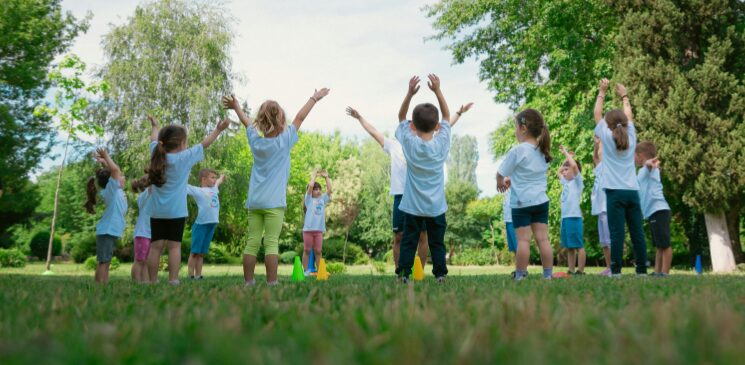
Children across the North are facing a health crisis and experts say physical activity must be at the heart of the solution.
Latest analysis from Child of the North highlights:
- Obesity in children remains above pre-pandemic levels
- 29.6% of children and young people (2.2m) in England are classed as inactive, achieving less than an average of 30 mins of physical activity per day (Sport England Active Lives Children and Young People Survey 2023/24)
- 5-6% of children have clinically significant difficulties with movement skills (around 540,000 in the UK) which negatively impact their ability to engage with physical activity and education (Centre for Applied Educational Research)
- New findings from 250 schools show the Creating Active Schools (CAS) programme can increase children’s physical activity by over 70 minutes per week and deliver population-level impact.
- The accumulating evidence on the need for the UK to adopt World Health Organisation recommendations and implement whole system approaches to physical activity involving schools.
Child of the North and partners present the latest evidence in the update: Improving physical activity update: accumulating evidence for effective interventions.
This update is the fifth in a series of 12 updates to a major series of reports produced last year on key topics identified by Northern child health leaders as major issues of concern, including poverty, special educational needs, school attendance and mental health.
The fifth report in the series An evidence-based plan for supporting physical activity and healthy nutrition with and through education settings, was published in May 2024 and provides rigorous research and pragmatic, evidence-based recommendations.
While this update indicates that whole-school approaches show promise, it evidences how the system is not yet delivering at the scale needed.
#ChildrenFirst campaign provides updates and toolkits
The #ChildrenFirst campaign aims to bring attention back to the 12 reports and calls for the government, policymakers, practitioners, academics, communities and young people to work together to build a country that works for all children and young people.
The campaign was launched at the National Opportunity Summit hosted in Leeds on Monday 8 September, where Minister Josh MacAllister pledged his support towards building a country that works for all children on his first day as Parliamentary Under-Secretary in the Department for Education.
This latest evidence reinforces how schools should not just be sites of learning, but key settings for support and holistic approaches to childhood health.
“It is time for the Government to act. The health of our children is the worst it has ever been. We need to change the culture of our schools to raise the importance of health and well-being. Otherwise we will continue to deepen the health inequalities embedded within our society.”
Professor Andrew Daly-Smith, Associate Director for the Centre for Health and Social Care Research, University of Bradford
“The reality is if you are born near Bradford Royal Infirmary, you are likely to die 10 years earlier than if you were born in Wharfedale. This is unacceptable in the UK in 2025. We have got to act at pace or we will fail the next school generation.”
Professor Mark Mon-Williams, University of Leeds
The #ChildrenFirst campaign also includes the launch of toolkits designed to help schools, child health workers and local authorities take practical steps to improve the health and wellbeing issues faced by the children and young people in their care.
Each of the 12 reports is based on in-depth research carried out by academic experts in children and young people’s health and wellbeing from universities across the North of England and beyond, including N8 Research Partnership members Leeds, Manchester, Durham, York, Lancaster, Liverpool, Sheffield and Newcastle, plus the University of Bradford, and others.
The policy recommendations made in the reports have helped to shape the Government’s Opportunity Mission – the goal of which is to break down the link between a person’s background and their future success, and giving children the best start in life. The aim of the toolkits is to ensure alignment between practitioners on the ground and the government’s work on the Opportunity Mission, to make certain that every child has the best possible start in life.